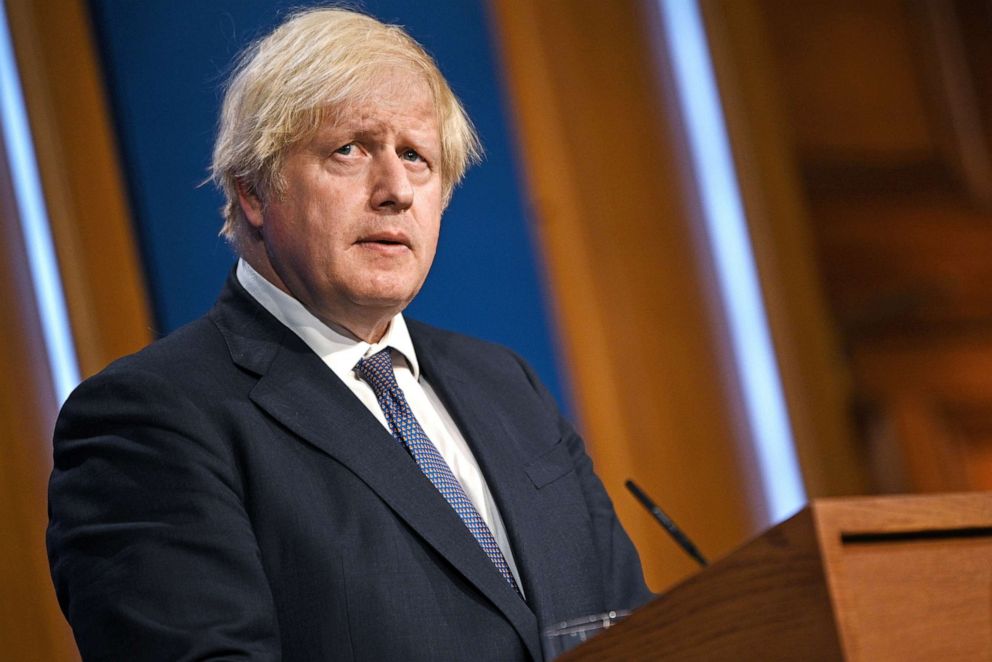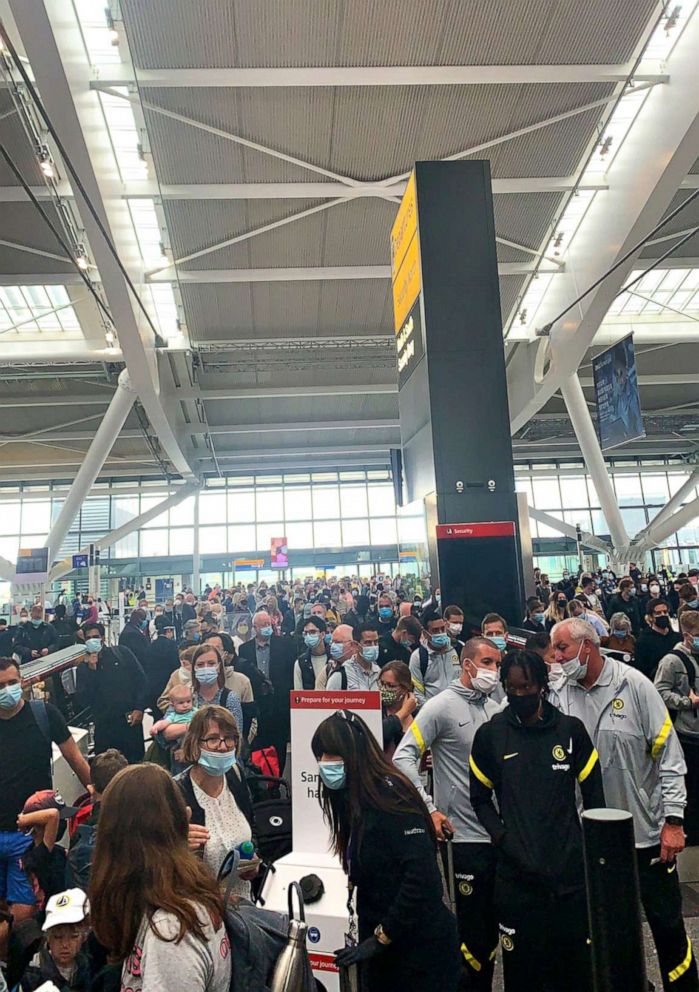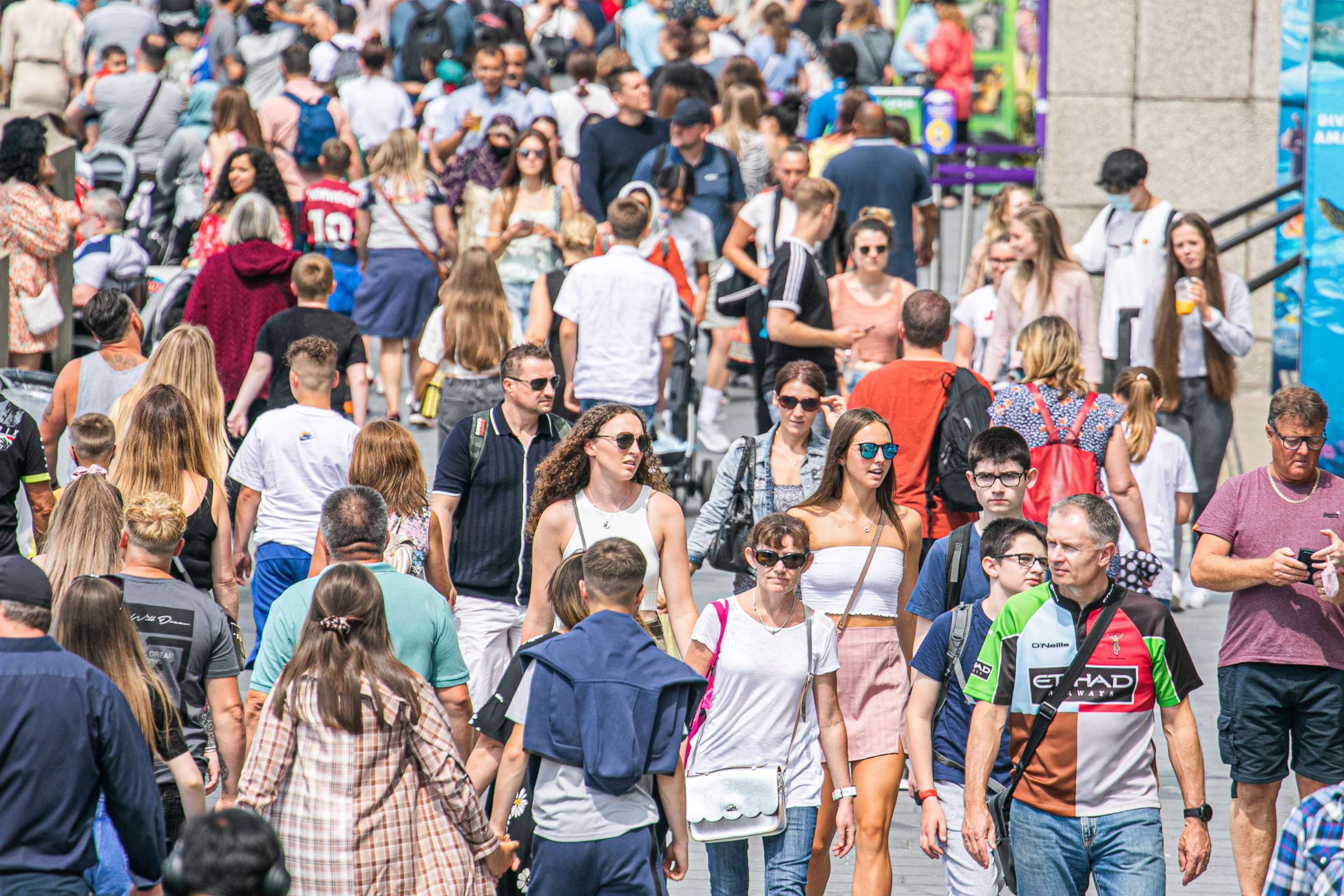Why COVID-19 cases in UK have dropped even after lifting restrictions
An epidemiologist says there's a few things that explain the sudden drop.
LONDON -- The British government recorded a drop in COVID-19 cases for the fifth day in a row Tuesday. Daily deaths rose slightly to 138, but for almost a week had been under 100.
It’s a far cry from public warnings earlier in summer, when the country's newly minted Health Secretary Sajid Javid warned the nation of the possibility of 100,000 daily cases.
Despite those warnings, the government lifted all remaining restrictions on social distancing and mandated mask-wearing in England on July 19. Prime Minister Boris Johnson's "Freedom Day” was criticized as an irresponsible move in the midst of a third wave driven by the highly transmissible delta variant. "A murderous policy," said Dr. Gabriel Scally, a leading public health expert at the University of Bristol. "Epidemiological stupidity," a World Health Organization official said.
But then, cases dropped by around 40%, and deaths and hospitalizations have stayed low, despite the ending of all restrictions -- and the world has been baffled as to why.

Many are pointing to the high vaccination rate in the U.K. More than 72% of all adults have received their full dose of vaccination, and the Office for National Statistics recently announced it estimated that 92% of the population in England has antibodies, either through vaccination or through previous infection of COVID-19.
Some experts, such as King's College London professor of genetic epidemiology Tim Spector, have called foul on the data. Spector suggested in an interview with Sky News that the sudden drop in cases -- "unheard of in pandemics" -- was likely due to a lack of young people getting tested and asymptomatic cases not being counted in the official reported figures.
But that's just not true, said John Edmunds, an epidemiologist and member of the Scientific Advisory Group for Emergencies committee that advises the British government on COVID-19 policy.
Edmunds told ABC News that several key circumstances appear to explain the sudden drop in cases.
End of Euro 2020 championships
A surge largely triggered by a return to normal, non-pandemic behavior during the Euro 2020 soccer championships has now mostly dissipated.
"The Euros was a glimpse of what would happen if we started to go back to much more normal behavior and went back to the pubs to watch football and so on," Edmunds said. "Suddenly cases surge.”

But since the tournament is over, Brits aren’t going to the pubs and nightclubs as much, according to Edmunds' behavioral surveys.
"People’s behavior at the moment is nowhere near normal behavior," he said, even though there are no more restrictions in place.
The 'pingdemic'
Shortly after the Euros, in mid-July, the British government’s contact tracing app also became embroiled in a situation that became known as the "pingdemic."
Hundreds of thousands of people across the U.K. were suddenly ordered to self-isolate at home, after being notified by the app that they had come into contact with someone who had tested positive for the virus.
Businesses were faced with staffing shortages, and there were chaotic scenes at Heathrow Airport in London when suddenly hundreds of security staff were told to go home and isolate.

School vacations
Another key factor is the closure of schools during summer vacations. During the school year, schoolchildren and teachers are regularly tested, but they aren't tested while on summer vacation. The break seems to account not just for a dip in daily tests but also in the virus spreading between children, parents and teachers, Edmunds said.
"School closure has been very important, and we’ve seen the effect of it throughout the pandemic, with schools opening and closing," he said. "But it’s so important now because we’ve concentrated so much infection into the younger age groups because they are not vaccinated."
The government has opened vaccination eligibility to young people within three months of turning 18. Health advisers say there is little benefit to vaccinating children because so few become seriously ill or die from the virus. There is currently no vaccine authorized for use in children younger than 12 years old, though some children deemed to be of particular risk to COVID-19 are allowed to be vaccinated under current rules.

It is the return of schools and businesses that worries Edmunds.
"My fear has always been September when schools open again, and I think at that point, businesses, companies, organizations will start to assess employees to come back in to the office," he said. "I hope they don’t, but if they do I think we will see another surge in cases in the autumn."




